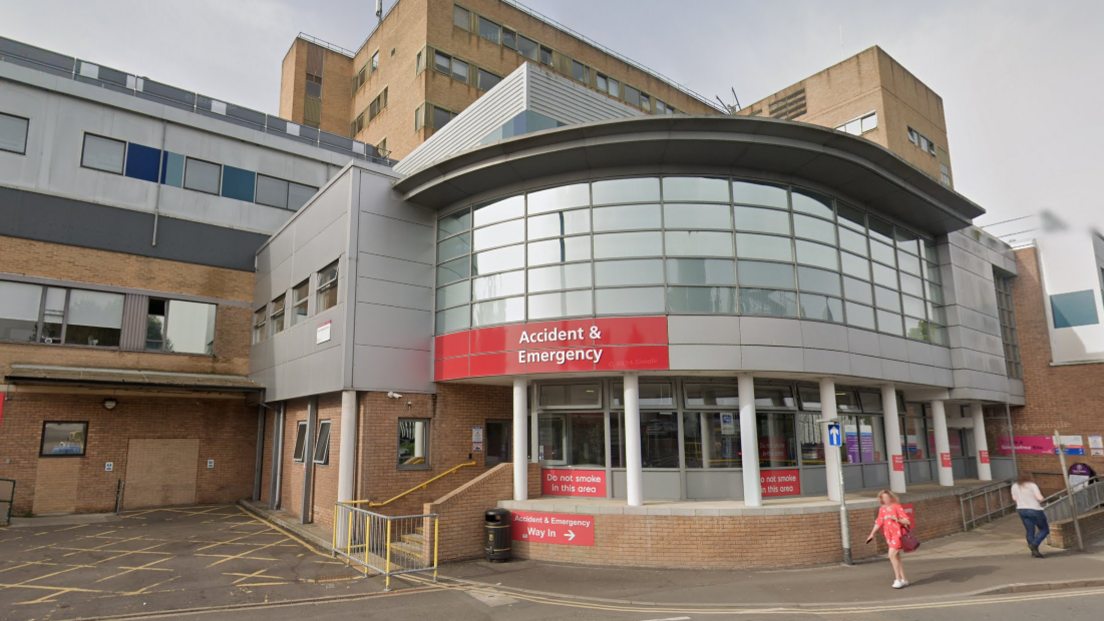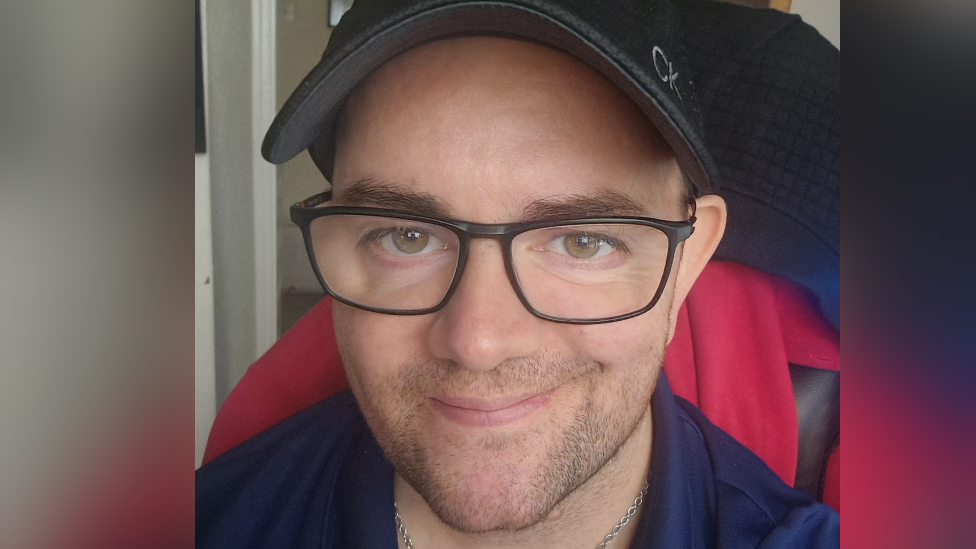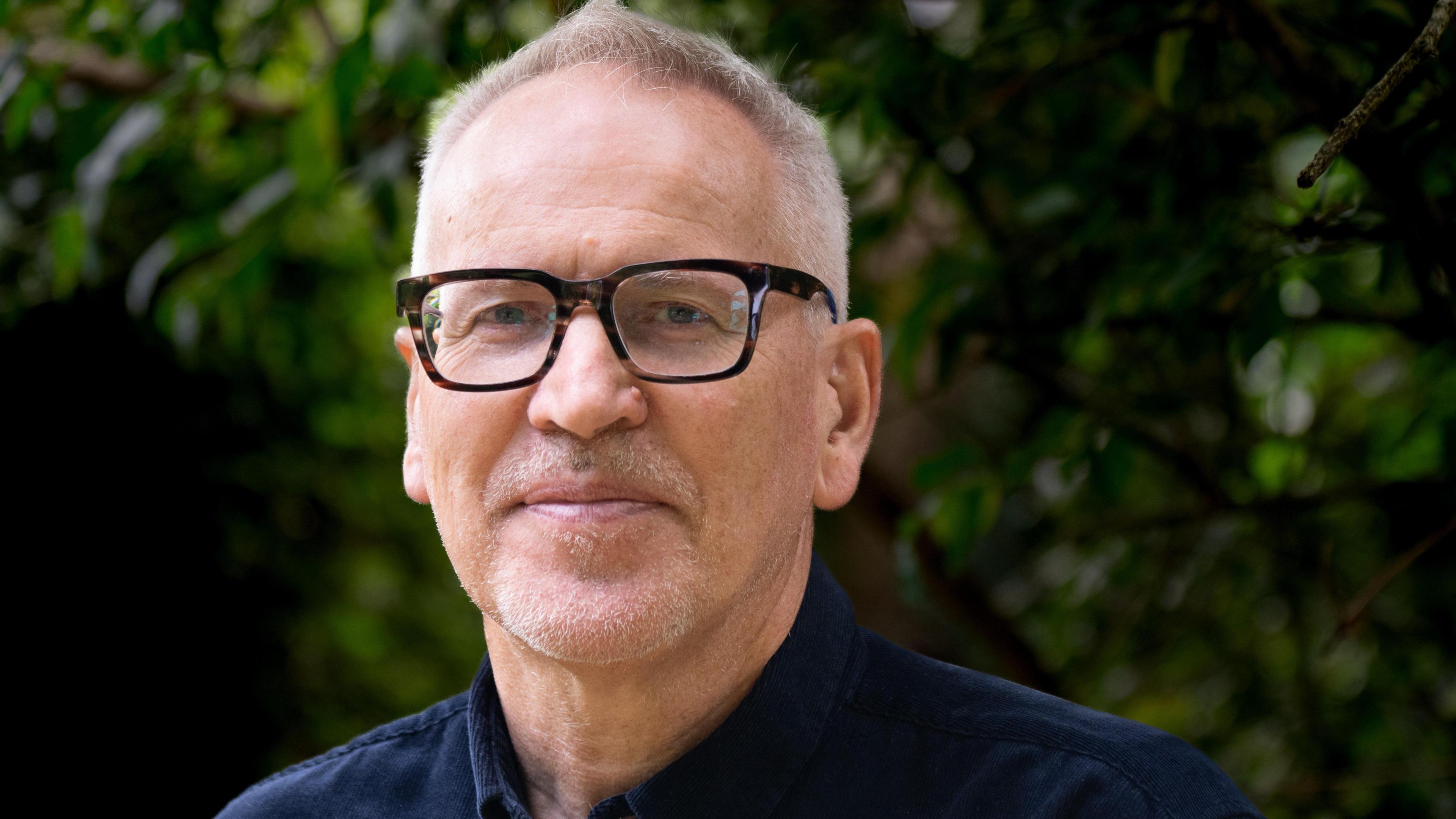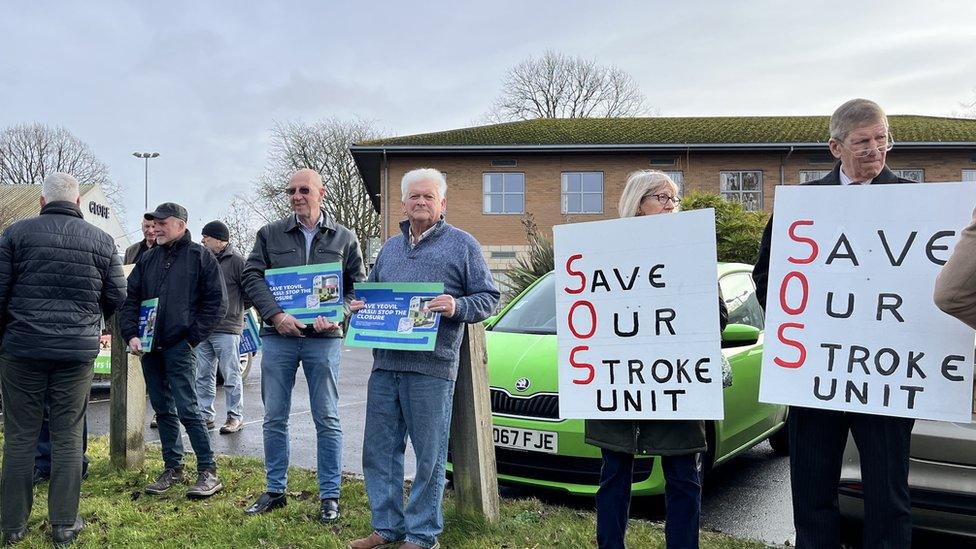'No logic' in closing stroke unit, say campaigners

Yeovil District Hospital's hyper-acute stroke unit is set to close
- Published
A hospital's closure of a hyper-acute stroke unit (HASU) goes "against all logic", a campaign group has said.
Somerset's Integrated Care Board (ICB) voted in January 2024 to close the unit at Yeovil District Hospital (YDH). Patients will be treated at Musgrove Park in Taunton or Dorchester County Hospital in Dorset.
Steve D'Arcy, from Yeovil, suffered a stroke almost six years ago. He credited the HASU for aiding his "amazing" recovery, which he said only happened because he was seen quickly.
A spokesperson for NHS Somerset said the importance of fast treatment remains "undisputed" and their decision aims to ensure patients will receive the same level of care at other hospitals.
The HASU treats patients in the first 72 hours following a stroke and provides brain scans and drugs to treat blood clots.
Last year, local residents protested the decision when it was announced that stroke patients will instead be taken to Musgrove Park Hospital, which takes about 50 minutes to reach from YDH, or Dorchester County Hospital, which takes about 35 minutes to travel to from Yeovil.
Typically, medication needs to be given within three hours of when symptoms began, external, health experts have said.

Steve D'Arcy suffered a stroke when he was 36-years-old
When Mr D'Arcy woke up on his day off work on 16 January 2019, he felt pins and needles in his right arm.
He initially thought it was related to how he slept, but when he caught a glimpse of his face drooping on one side he instantly knew he was having a stroke. He was only 36 at the time.
"The fear that exploded from my stomach was enormous," he said.
Prompt response
Mr D'Arcy alerted his wife and she called an ambulance, who arrived minutes later and transported him to Yeovil's HASU where he received a diagnosis and treatment.
He understands why the ICB voted to close the unit, but argued they have forgotten how important time is when dealing with strokes.
"[The move will] improve the services when people get to hospital, but the fact is if you get to hospital too late… you could have all the clinicians and all the experts in the world there, but they can't do anything," he said.

Ray Tostevin said there is "no logic" to the ICB's decision to close the HASU in Yeovil
Ray Tostevin is the chair of Quicksilver, a campaign group protesting the decision to close the HASU in Yeovil.
Although the group failed to get the Health Secretary, Wes Streeting, to review the plan, they are still calling for further scrutiny of the outcome.
Mr Tostevin said: "The notion set by closing a major stroke unit that serves a substantial part of the county and asking patients to travel further for longer in order to get their care flies against all the logic and the evidence that's been put forward by the medical establishment.
"Two million brain cells every minute, external die after you've had a stroke.
"It seems crazy by any means to think that would be a satisfactory alternative.
"There isn't a logic in that," he added.
Mr Tostevin wrote to the ICB urging a reversal of plans, stating that "such healthcare vandalism would be totally unacceptable".
'Catastrophic' consequences
Stroke consultant Dr Khalid Rashed MBE is also against the plans.
In December 2023, a month before the decision was made, he wrote to the ICB warning of the "catastrophic effect" the closure would lead to.
In his letter, seen by the BBC, Dr Rashed advised focusing on the "desperately needed" investment, organisational and operational support, a strong workforce to deliver on National Guidelines and a stroke ward with dedicated HASU beds at both YDH and Musgrove Park hospitals.
Nine months after the ICB's vote, Dr Rashed wrote a second letter to express how "unhappy" he was with the plan.
He wrote that the board had ignored the "major negative impact" the closure would have on patients' recovery and the social consequences it would have on them, their families and their carers.
Dr Rashed acknowledged NHS Somerset Foundation Trust's recruitment success and noted that while the ICB's intentions were good, the decision was "not the correct one".
'The right decision'
In a statement, Dr Bernie Marden, the chief medical officer for NHS Somerset, said he believed the decision to close Yeovil's HASU was "the right one".
"The importance of fast treatment at a Hyper Acute Stroke Unit (HASU) is undisputed and our decision aims to make sure patients receive that level of expert care at any time of day or night in Taunton and Dorchester.
He added that YDH has recently trialled an on-site seven-day consultant-led service for stroke patients, but the trial was stopped before Christmas as it was "unsustainable" for staff.
"The Secretary of State for Health and Social Care recently decided that all requests to 'call in' our January 2024 decision do not meet the threshold for ministerial intervention.
"The Government also confirmed that NHS Somerset is best placed to determine the needs of our local population - and we will continue to work closely with partners, patient groups, staff and local MPs, including through our Stroke Stakeholder Reference Group, which is well established and is independently chaired by Healthwatch Somerset, to make sure local voices are heard through the implementation phase."
The implementation phase is being led by Somerset NHS Foundation Trust and Dorset County Hospital NHS Trust.
The new service is expected to go live in early 2026, Dr Marden added.
Get in touch
Tell us which stories we should cover in Somerset
Follow BBC Somerset on Facebook, external and X, external. Send your story ideas to us on email or via WhatsApp on 0800 313 4630.
Related topics
- Published16 December 2024

- Published25 January 2024
